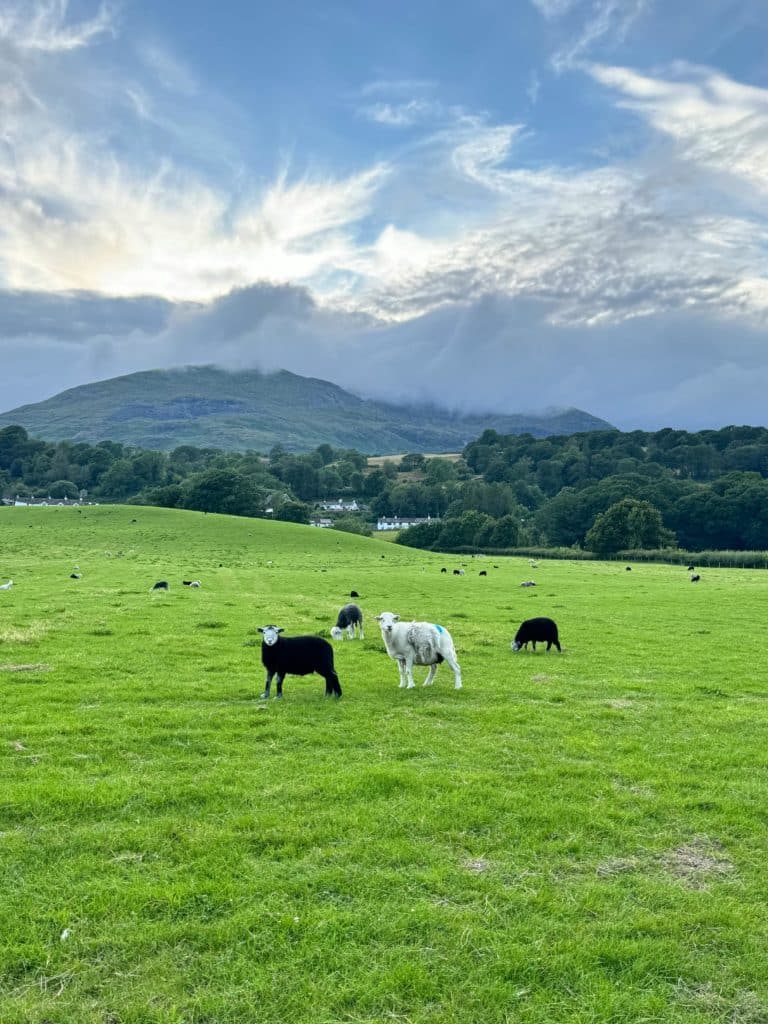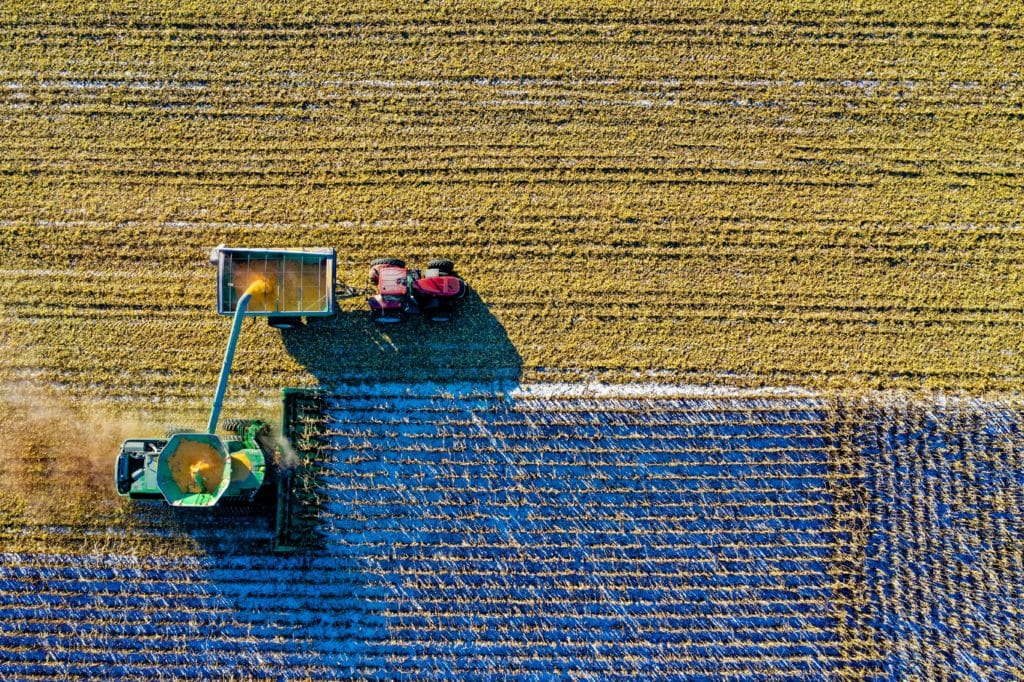Diversification opportunities when transferring a farm
You’re selling your farm: you think the buyer will take it over exactly as before! You want to become a farmer and buy a farm: you think the property will be exactly what you have in mind! But are you so sure? Will your buyer, a future farmer, have exactly the same agricultural aspirations as you? Will they have the same life plan as the one you’ve built throughout your career? Will the type of farm you are aiming for be a success from the outset?
The transfer of a farm involves a vendor and a purchaser temporarily travelling a road together. In the same car, the seller looks in the rear-view mirror at what he has done with his business in the past, and the buyer looks out the windscreen at what he will do with it in the future. Both have one thing in common: they want to work together to pass on the business.
Agriculture is constantly evolving. If it is to reinvent itself and meet society’s expectations, the need for economic balance and certain environmental constraints, it will be important to seize every opportunity. Diversification in agriculture could be one of the solutions available to you.
Diversification is the broadening of the products, cultures, range of activities and/or markets to which a company is dedicated.
In this article, we provide you with some keys to acquiring the open-mindedness you need to build your business plan and find a buyer.
Diversification as a transfer strategy
You have a farming project but can’t find the right farm for you. What strategy should you adopt, what framework should you define?
The farms in question correspond to certain criteria, but are sometimes out of budget, or too big, or too small. It may be possible to set up on a smaller site and then consider gradual development through diversification, optimisation or expansion. Conversely, you may not be obliged to take over the whole of the sales area or the surface area operated if it is too large. Acquiring a slightly smaller asset will also make it easier for you to consider getting finance from the bank: it will look closely to see whether the assets to be financed are consistent with your workforce requirements and your personal contribution.
Current production may be modifiable, and complementary products or crops may be possible. Current production can be maintained while the business moves towards the desired products and crops. Advantages: you have an income while you wait for this change. You reassure financiers by not destabilising the existing business. Disadvantages: you accept this type of production on a temporary basis and you need training and support to master the techniques involved.
Based on prior discussions with the sellers, QUATUOR-TRANSACTIONS will know whether the seller is open to a change in production or to not selling certain assets (equipment, livestock, etc.). We’re here to help you find the right property for your budget. Your negotiator will know what room for manoeuvre is possible after discussing these options with the sellers. Some negotiations are possible and a change of scope is sometimes necessary. QUATUOR-TRANSACTIONS is aware of opportunities for additional business lines and potential short- or medium-term expansions. Each Quatuor negotiator, with his or her roots in the local area, will be able to advise you.
Don’t close the door to certain opportunities based on preconceived ideas. Don’t put unnecessary obstacles in your way. We’re here to help you.
Sellers, You think that your buyer will take over your site and its productions and continue what you have set up!
You need to remember that your farm was not what it is today when you set up, and that the social and environmental context has changed since you did. You have gradually developed your farm as your needs have changed, as constraints and opportunities have arisen.
You need to understand that project owners may not have the same aspirations as you, even if they like your site. So you need to be open-minded enough to seize opportunities to sell your farm.
Your QUATUOR negotiator will provide you with an objective external view of the characteristics of your agricultural property, enabling you to broaden the range of buyer profiles.
You are also in the best position to know the environment in which your farm operates, so that you can offer diversification opportunities to your buyer: sectors, related activities, etc.

Expanding agricultural activities
Sellers, buyers: what diversifications are possible?
Changes in techniques: towards soil conservation agriculture, zero-tillage, agroforestry, conversion to organic farming….
Change of production system: from a non-grazing system to a system with access to pasture, creation of a boviduc, change from a standard milking system to a robotised system or vice versa.
Changing or adding a farming activity: moving from the main production to another, developing an additional production: suckling, poultry, goats, sheep, market gardening, horses, seeds, etc.

Adapting production to growth sectors
The creation of related activities needs to be considered:
- Photovoltaics, biogas… ;
- Processing workshop, direct sales, short distribution channels;
- Agrotourism: gîte, bed and breakfast, restaurant, reception and seminar venue, coworking space, educational farm, camping on the farm and/or motorhome reception area;
You will also be able to adapt the farm to opportunities in the area: specialised crops, seed production, medicinal plants, farm shops, etc.
Diversification can also be envisaged without changing the production framework, by seeking to optimise the existing system and improve technical and economic results by signing up to quality charters: PDO, AOC, PGI, Bleu-Blanc-Cœur, GMO-free, AB, etc.
Your QUATUOR negotiator will have a perfect understanding of the local area, the opportunities available and the agricultural diversification you can offer.
Key success factors for diversification
Market research and feasibility
Is the project located in an area where direct sales are feasible? Close to a major conurbation? Close to major roads? Is the catchment area large enough? Do you know the purchasing power in the area?
An analysis of the catchment area and the potential market will therefore be necessary to ensure the reliability of the elements included in your forecast. You will need to carry out a market study and a competitive study to ascertain the possibilities for change and the potential of these activities.
QUATUOR will be able to put you in touch with the right partners: technical, agronomic and economic advisers, research consultancies, management centres, POs, groups, sectors, etc.
Integrating sustainability into the diversification strategy
Does your agricultural and diversification project take account of environmental issues related to agriculture?
- Protection of resources and environments (quantitative and qualitative water management, preservation of agricultural soils and air quality, etc.)
- Preserving biodiversity
- Limiting the impacts of climate change and adapting to these effects
- Increasing energy sobriety and performance in the agricultural sector
- Use and development of biomass through its various applications (biofuels, electricity or heat production, etc.).
- Reducing farms’ dependence on inputs
- Developing the circular economy, making the most of livestock effluent
- Preserving agricultural land
Tools and resources for successful diversification
Financial support and help with setting up
If you are under 40, you may be eligible for “young farmer” start-up aid. This financial aid is conditional on taking part in the installation programme and complying with a financial forecast.
Know how to anticipate your start-up aid: administrative delays lengthen the transfer and start-up phase. That’s why you need to anticipate the stages that can be started before you’ve found the farm you want to take over. Anything done beforehand will save you time.
Certain groups, agri-food industries and cooperatives provide support for installation and diversification projects. This assistance is invaluable in helping you to understand and acquire the necessary technical skills. Often in return for a commitment to remain loyal to the sector, you can benefit from financial aid in the form of loans at preferential rates, cash flow facilities to finance the production cycle, and guaranteed feed-in tariffs.
Support and networking
The “foncières”, traditional banks, solidarity banks, the family environment, crowdfunding and private investors are also ways of diversifying funding and helping to invest in your project. Some land organisations support start-up projects by financing certain property assets (land, for example), in return for which you commit to agricultural projects that are oriented towards green, virtuous, environmental paths… Some banks, as part of their CSR policies, encourage innovative projects in the direction of relevant environmental projects. If you have people in your personal environment who believe in your project and in tomorrow’s agriculture, then what better way than to get help and support.
Your QUATUOR negotiator, with his knowledge of the local para-agricultural fabric, will be able to put you in touch with his network. They will be able to find out about possible grants and incorporate them into your overall financing plan before you draw up your business plan. This will help to reassure funding bodies. The bank shares the risk with the industry. They will also see that you have pulled out all the stops to secure your project.

If you want to create your own farming project, if you want to sell your farm, you can diversify!
To do this, you need to be open-minded, inventive, able to project, put yourself in the buyer’s shoes and put yourself in the seller’s shoes.
You will need to integrate your plans to sell or acquire a farm into the current social and environmental context.
You’ll need to be open-minded and inventive to work on all the optimisation levers to make your project more reliable and to finance it.
Finally, you’ll need the right partners. Quatuor is here to help.
In this way, we can work together to encourage the next generation of farmers.
